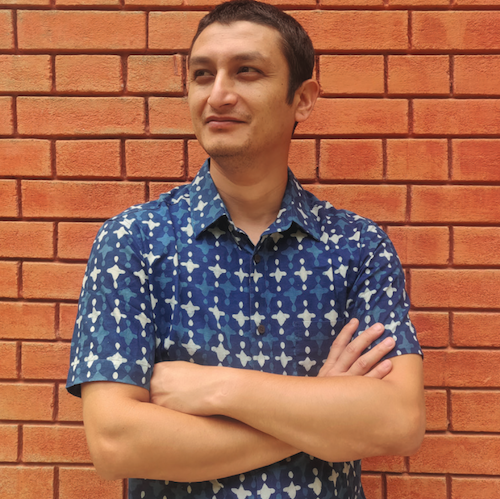Columns
VTEN's arrest is only a symbol of a larger malaise
‘Moral order’ is such an amorphous idea that anything undesirable to the authorities can be slotted into it.
Amish Raj Mulmi
The night of Laxmi Puja, a group of dancers somewhere in Pokhara decided to end their performance by invoking what is perhaps Nepal’s most popular song at the moment: Rapper Samir Ghising, aka VTen’s ‘Yestai Ta Ho Ni Bro’ (We’re like this only, bro!) The performance was electric, backflips included. Keeping in mind Ghising’s recent arrest by the police on grounds of moral corruption, it felt as if a statement was being made. It was as if the dancers were telling the government, ‘You can arrest us as much as you want. But we aren’t gonna change!’
In 2003, the singer Barbara Streisand sued a photo project for including photographs of her seaside mansion, citing invasion of privacy. The lawsuit was thrown out, but not before it catapulted the otherwise unknown photos of the mansion into internet stardom. Before the lawsuit, the photo had been downloaded six times. After, the site was visited 420,000 times, giving rise to the term Streisand Effect, which 'describes how efforts to suppress a juicy piece of online information can backfire and end up making things worse for the would-be censor.'
By arresting the singers Ghising and Durgesh Thapa for objectionable songwriting practices, our dear government and law enforcement officials created another such Streisand Effect. What it did was to thrust the two into internet stardom as vanguards of freedom of expression, where the two have become symbols of resistance against a state that sees itself as the protector of Nepali society’s values.
I'm sure there would have been many like me who hadn't heard of the two singers. By arresting them, the government has succeeded in creating a subversive piece of work. Consider Ghising’s song: without the arrest, it would have been just another work of rap, pushing the boundaries of machismo as hip-hop is wont to do, and creating an image of nonchalance and coolness (‘I screw Thailand’s stuff/eat Banarasi paan/and British rice/and come to s@#t in Kathmandu’—translation mine). Whatever the quality of the lyrics, after the arrest, the song is now a political statement. Every Nepali with a 3G connection has probably gone online to listen to it. As for removing the video from YouTube, it’s surprising that law enforcement across the world thinks one can remove anything from the internet.
The police were probably galled by the fictional emasculation of law enforcement (‘I entered the police post drunk and gave the DSP an autograph/Everyone got a heart attack after that’). But this is common practice for most rappers across the world, and one wonders what Nepal Police officials would have thought about Tupac Shakur, and more recently, Kendrick Lamar. If it were as sensitive towards law enforcement, however, we’d definitely see a higher conviction rate for crimes in Nepal.
The arrest of the two, however, is indicative of a larger malaise that has been creeping in our society for the past few years. Our communists (and other leaders), some of whom made their name by collaborating with royal repression, believe free expression and thought is a challenge to the social order they wish to sustain in Nepal. It is the same belief that led them to violently suppress calls for inclusion when the constitution was being promulgated. The end goal of such a state is a pliant society, one where the populace can be led around like the Dashain goats with promises of development. Nothing suits a government more than people satisfied with empty promises and false agendas, such as an unnecessary astrological controversy over Tihar dates in the name of preserving culture and heritage.
‘Moral order’ is such an amorphous idea that anything undesirable to the authorities can be slotted into it. Further, the idea that governments need to protect society from ‘moral corruption’, whatever that may be, is rooted in an archaic belief that the state knows better than us, a norm among both royalist and republican governments.
What we are seeing now is the culmination of several years of the silencing of critical voices, which began with the clampdown on those questioning a flawed constitution. The public intellectual space has shrunk since then, monopolised by those who cast aside the unwanteds, the radicals, the dissenters in the nation-building process. But the hollow foundations of such society would be exposed sooner or later.
It is not surprising the government is concerned about moral policing; there is little progressive thought any of its leaders have displayed. There isn’t a nation-building agenda beyond platitudes associated with infrastructure development, and even less discussion on upgrading the skills of our working population. The limits of this government's vision could be seen in Xi Jinping’s visit when we served him Norwegian salmon and Cantonese noodles instead of authentic Nepali dishes. Further, if one watches the archival videos welcoming Deng Xiaoping and Jiang Zemin to Kathmandu, one will be surprised to see the protocol for welcoming high-level dignitaries has remained unchanged for over 40 years.
With such a lack of imagination, and little progress on other economic fronts despite a massive mandate, it is no wonder preserving the social order is the last refuge for this government. I would be pleasantly surprised if there were no further clampdowns on freedom of expression, but all signs point towards its further erosion.
***
What do you think?
Dear reader, we’d like to hear from you. We regularly publish letters to the editor on contemporary issues or direct responses to something the Post has recently published. Please send your letters to [email protected] with "Letter to the Editor" in the subject line. Please include your name, location, and a contact address so one of our editors can reach out to you.




 13.12°C Kathmandu
13.12°C Kathmandu















